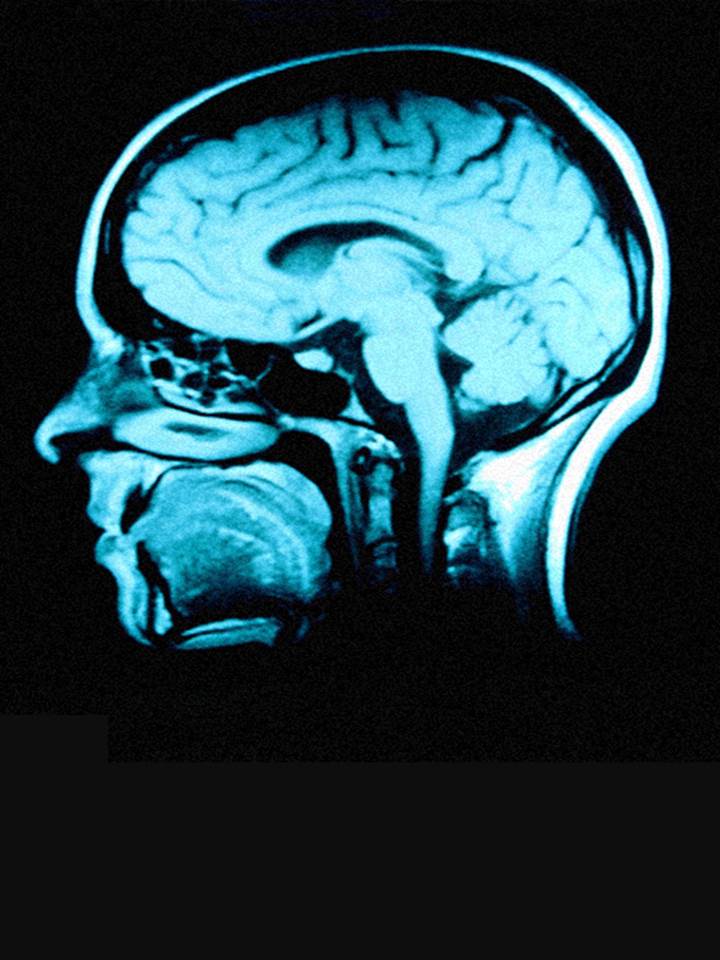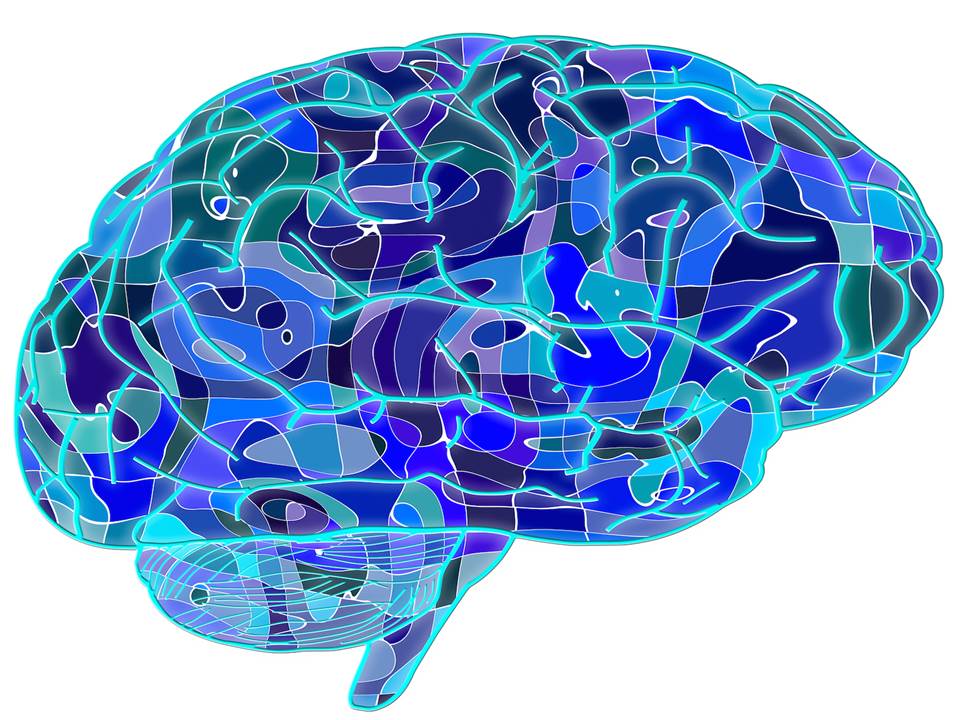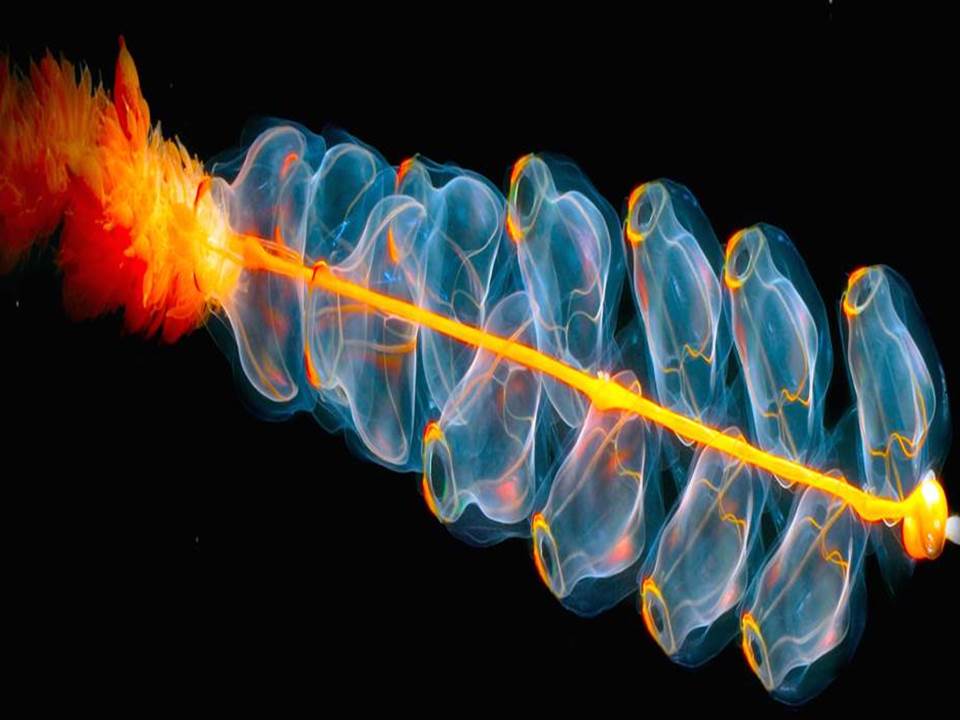Tag: God
Steve Fuller’s Review of Homo Deus: A Brief History of Tomorrow by Yuval Noah Harari
My sociology of knowledge students read Yuval Harari’s bestselling first book, Sapiens, to think about the right frame of reference for understanding the overall trajectory of the human condition. Homo Deus follows the example of Sapiens, using contemporary events to launch into what nowadays is called ‘big history’ but has been also called ‘deep history’ and ‘long history’. Whatever you call it, the orientation sees the human condition as subject to multiple overlapping rhythms of change which generate the sorts of ‘events’ that are the stuff of history lessons. But Harari’s history is nothing like the version you half remember from school.
In school historical events were explained in terms more or less recognizable to the agents involved. In contrast, Harari reaches for accounts that scientifically update the idea of ‘perennial philosophy’. Aldous Huxley popularized this phrase in his quest to seek common patterns of thought in the great world religions which could be leveraged as a global ethic in the aftermath of the Second World War. Harari similarly leverages bits of genetics, ecology, neuroscience and cognitive science to advance a broadly evolutionary narrative. But unlike Darwin’s version, Harari’s points towards the incipient apotheosis of our species; hence, the book’s title.
This invariably means that events are treated as symptoms if not omens of the shape of things to come. Harari’s central thesis is that whereas in the past we cowered in the face of impersonal natural forces beyond our control, nowadays our biggest enemy is the one that faces us in the mirror, which may or may not be able within our control. Thus, the sort of deity into which we are evolving is one whose superhuman powers may well result in self-destruction. Harari’s attitude towards this prospect is one of slightly awestruck bemusement.
Here Harari equivocates where his predecessors dared to distinguish. Writing with the bracing clarity afforded by the Existentialist horizons of the Cold War, cybernetics founder Norbert Wiener declared that humanity’s survival depends on knowing whether what we don’t know is actually trying to hurt us. If so, then any apparent advance in knowledge will always be illusory. As for Harari, he does not seem to see humanity in some never-ending diabolical chess match against an implacable foe, as in The Seventh Seal. Instead he takes refuge in the so-called law of unintended consequences. So while the shape of our ignorance does indeed shift as our knowledge advances, it does so in ways that keep Harari at a comfortable distance from passing judgement on our long term prognosis.
This semi-detachment makes Homo Deus a suave but perhaps not deep read of the human condition. Consider his choice of religious precedents to illustrate that we may be approaching divinity, a thesis with which I am broadly sympathetic. Instead of the Abrahamic God, Harari tends towards the ancient Greek and Hindu deities, who enjoy both superhuman powers and all too human foibles. The implication is that to enhance the one is by no means to diminish the other. If anything, it may simply make the overall result worse than had both our intellects and our passions been weaker. Such an observation, a familiar pretext for comedy, wears well with those who are inclined to read a book like this only once.
One figure who is conspicuous by his absence from Harari’s theology is Faust, the legendary rogue Christian scholar who epitomized the version of Homo Deus at play a hundred years ago in Oswald Spengler’s The Decline of the West. What distinguishes Faustian failings from those of the Greek and Hindu deities is that Faust’s result from his being neither as clever nor as loving as he thought. The theology at work is transcendental, perhaps even Platonic.
In such a world, Harari’s ironic thesis that future humans might possess virtually perfect intellects yet also retain quite undisciplined appetites is a non-starter. If anything, Faust’s undisciplined appetites point to a fundamental intellectual deficiency that prevents him from exercising a ‘rational will’, which is the mark of a truly supreme being. Faust’s sense of his own superiority simply leads him down a path of ever more frustrated and destructive desire. Only the one true God can put him out of his misery in the end.
In contrast, if there is ‘one true God’ in Harari’s theology, it goes by the name of ‘Efficiency’ and its religion is called ‘Dataism’. Efficiency is familiar as the dimension along which technological progress is made. It amounts to discovering how to do more with less. To recall Marshall McLuhan, the ‘less’ is the ‘medium’ and the ‘more’ is the ‘message’. However, the metaphysics of efficiency matters. Are we talking about spending less money, less time and/or less energy?
It is telling that the sort of efficiency which most animates Harari’s account is the conversion of brain power to computer power. To be sure, computers can outperform humans on an increasing range of specialised tasks. Moreover, computers are getting better at integrating the operations of other technologies, each of which also typically replaces one or more human functions. The result is the so-called Internet of Things. But does this mean that the brain is on the verge of becoming redundant?
Those who say yes, most notably the ‘Singularitarians’ whose spiritual home is Silicon Valley, want to translate the brain’s software into a silicon base that will enable it to survive and expand indefinitely in a cosmic Internet of Things. Let’s suppose that such a translation becomes feasible. The energy requirements of such scaled up silicon platforms might still be prohibitive. For all its liabilities and mysteries, the brain remains the most energy efficient medium for encoding and executing intelligence. Indeed, forward facing ecologists might consider investing in a high-tech agronomy dedicated to cultivating neurons to function as organic computers – ‘Stem Cell 2.0’, if you will.
However, Harari does not see this possible future because he remains captive to Silicon Valley’s version of determinism, which prescribes a migration from carbon to silicon for anything worth preserving indefinitely. It is against this backdrop that he flirts with the idea that a computer-based ‘superintelligence’ might eventually find humans surplus to requirements in a rationally organized world. Like other Singularitarians, Harari approaches the matter in the style of a 1950s B-movie fan who sees the normative universe divided between ‘us’ (the humans) and ‘them’ (the non-humans).
The bravest face to put on this intuition is that computers will transition to superintelligence so soon – ‘exponentially’ as the faithful say — that ‘us vs. them’ becomes an operative organizing principle. More likely and messier for Harari is that this process will be dragged out. And during that time Homo sapiens will divide between those who identify with their emerging machine overlords, who are entitled to human-like rights, and those who cling to the new acceptable face of racism, a ‘carbonist’ ideology which would privilege organic life above any silicon-based translations or hybridizations. Maybe Harari will live long enough to write a sequel to Homo Deus to explain how this battle might pan out.
NOTE ON PUBLICATION: Homo Deus is published in September 2016 by Harvil Secker, an imprint of Penguin Random House. Fuller would like to thank The Literary Review for originally commissioning this review. It will appear in a subsequent edition of the magazine and is published here with permission.

Bioquark Inc. and Revita Life Sciences Receive IRB Approval for First-In-Human Brain Death Study
Bioquark, Inc., (http://www.bioquark.com) a company focused on the development of novel biologics for complex regeneration and disease reversion, and Revita Life Sciences, (http://revitalife.co.in) a biotechnology company focused on translational therapeutic applications of autologous stem cells, have announced that they have received IRB approval for a study focusing on a novel combinatorial approach to clinical intervention in the state of brain death in humans.
This first trial, within the portfolio of Bioquark’s Reanima Project (http://www.reanima.tech) is entitled “Non-randomized, Open-labeled, Interventional, Single Group, Proof of Concept Study With Multi-modality Approach in Cases of Brain Death Due to Traumatic Brain Injury Having Diffuse Axonal Injury” (https://clinicaltrials.gov/ct2/show/NCT02742857?term=bioquark&rank=1), will enroll an initial 20 subjects, and be conducted at Anupam Hospital in Rudrapur, Uttarakhand India.
“We are very excited about the approval of our protocol,” said Ira S. Pastor, CEO, Bioquark Inc. “With the convergence of the disciplines of regenerative biology, cognitive neuroscience, and clinical resuscitation, we are poised to delve into an area of scientific understanding previously inaccessible with existing technologies.”
Death is defined as the termination of all biological functions that sustain a living organism. Brain death, the complete and irreversible loss of brain function (including involuntary activity necessary to sustain life) as defined in the 1968 report of the Ad Hoc Committee of the Harvard Medical School, is the legal definition of human death in most countries around the world. Either directly through trauma, or indirectly through secondary disease indications, brain death is the final pathological state that over 60 million people globally transfer through each year.
While human beings lack substantial regenerative capabilities in the CNS, many non-human species, such as amphibians, planarians, and certain fish, can repair, regenerate and remodel substantial portions of their brain and brain stem even after critical life-threatening trauma.
Additionally, recent studies on complex brain regeneration in these organisms, have highlighted unique findings in relation to the storage of memories following destruction of the entire brain, which may have wide ranging implications for our understanding of consciousness and the stability of memory persistence.
“Through our study, we will gain unique insights into the state of human brain death, which will have important connections to future therapeutic development for other severe disorders of consciousness, such as coma, and the vegetative and minimally conscious states, as well as a range of degenerative CNS conditions, including Alzheimer’s and Parkinson’s disease,” said Dr. Sergei Paylian, Founder, President, and Chief Science Officer of Bioquark Inc.
Over the years, clinical science has focused heavily on preventing such life and death transitions and made some initial progress with suspended animation technologies, such as therapeutic hypothermia. However, once humans transition through the brain death window, currently defined by the medical establishment as “irreversible”, they are technically no longer alive, despite the fact that human bodies can still circulate blood, digest food, excrete waste, balance hormones, grow, sexually mature, heal wounds, spike a fever, and gestate and deliver a baby. It is even acknowledged by thought leaders that recently brain dead humans still may have residual blood flow and electrical nests of activity in their brains, just not enough to allow for an integrated functioning of the organism as a whole.
“We look forward to working closely with Bioquark Inc. on this cutting edge clinical initiative,” said Dr. Himanshu Bansal, Managing Director of Revita Life Sciences.
About Bioquark, Inc.
Bioquark Inc. is focused on the development of natural biologic based products, services, and technologies, with the goal of curing a wide range of diseases, as well as effecting complex regeneration. Bioquark is developing both biological pharmaceutical candidates, as well as products for the global consumer health and wellness market segments.
About Revita Life Sciences
Revita Life Sciences is a biotechnology company focused on the development of stem cell therapies that target areas of significant unmet medical need. Revita is led by Dr. Himanshu Bansal MD, PhD. who has spent over two decades developing novel MRI based classifications of spinal cord injuries as well as comprehensive treatment protocols with autologous tissues including bone marrow stem cells, dural nerve grafts, nasal olfactory tissues, and omental transposition.

Resurrection and Biotechnology
“He is not here; He has risen,” — Matthew 28:6
As billions of Christians around the world are getting ready to celebrate the Easter festival and holiday, we take pause to appreciate the awe inspiring phenomena of resurrection.
In religious and mythological contexts, in both Western and Eastern societies, well known and less common names appear, such as Attis, Dionysus, Ganesha, Krishna, Lemminkainen, Odin, Osiris, Persephone, Quetzalcoatl, and Tammuz, all of whom were reborn again in the spark of the divine.
In the natural world, other names emerge, which are more ancient and less familiar, but equally fascinating, such as Deinococcus radiodurans, Turritopsis nutricula, and Milnesium tardigradum, all of whose abilities to rise from the ashes of death, or turn back time to start life again, are only beginning to be fully appreciated by the scientific world.
In the current era, from an information technology centric angle, proponents of a technological singularity and transhumanism, are placing bets on artificial intelligence, virtual reality, wearable devices, and other non-biological methods to create a future connecting humans to the digital world.
This Silicon Valley, “electronic resurrection” model has caused extensive deliberation, and various factions to form, from those minds that feel we should slow down and understand the deeper implications of a post-biologic state (Elon Musk, Steven Hawking, Bill Gates, the Vatican), to those that are steaming full speed ahead (Ray Kurzweil / Google) betting that humans will shortly be able to “transcend the limitations of biology”.
However, deferring an in-depth Skynet / Matrix discussion for now, is this debate clouding other possibilities that we have forgotten about, or may not have even yet fully considered?
Today, we find ourselves at an interesting point in history where the disciplines of regenerative sciences, evolutionary medicine, and complex systems biology, are converging to give us an understanding of the cycle of life and death, orders of magnitude more complex than only a few years ago.
In addition to the aforementioned species that are capable of biologic reanimation and turning back time, we show no less respect for those who possess other superhuman capabilities, such as magnetoreception, electrosensing, infrared imaging, and ultrasound detection, all of which nature has been optimizing over hundreds of millions of years, and which provide important clues to the untapped possibilities that currently exist in direct biological interfaces with the physical fabric of the universe.
The biologic information processing occurring in related aneural organisms and multicellular colony aggregators, is no less fascinating, and potentially challenges the notion of the brain as the sole repository of long-term encoded information.
Additionally, studies on memory following the destruction all, or significant parts of the brain, in regenerative organisms such as planarians, amphibians, metamorphic insects, and small hibernating mammals, have wide ranging implications for our understanding of consciousness, as well as to the centuries long debate between the materialists and dualists, as to whether we should focus our attention “in here”, or “out there”.
I am not opposed to studying either path, but I feel that we have the potential to learn a lot more about the topic of “out there” in the very near future.
The study of brain death in human beings, and the application of novel tools for neuro-regeneration and neuro-reanimation, for the first time offer us amazing opportunities to start from a clean slate, and answer questions that have long remained unanswered, as well as uncover a knowledge set previously thought unreachable.
Aside from a myriad of applications towards the range of degenerative CNS indications, as well as disorders of consciousness, such work will allow us to open a new chapter related to many other esoteric topics that have baffled the scientific community for years, and fallen into the realm of obscure curiosities.
From the well documented phenomena of terminal lucidity in end stage Alzheimer’s patients, to the mysteries of induced savant syndrome, to more arcane topics, such as the thousands of cases of children who claim to remember previous lives, by studying death, and subsequently the “biotechnological resurrection” of life, we can for the first time peak through the window, and offer a whole new knowledge base related to our place, and our interaction, with the very structure of reality.
We are entering a very exciting era of discovery and exploration.
About the author
Ira S. Pastor is the Chief Executive Officer of Bioquark Inc. (www.bioquark.com), an innovative life sciences company focusing on developing novel biologic solutions for human regeneration, repair, and rejuvenation. He is also on the board of the Reanima Project (www.reanima.tech)
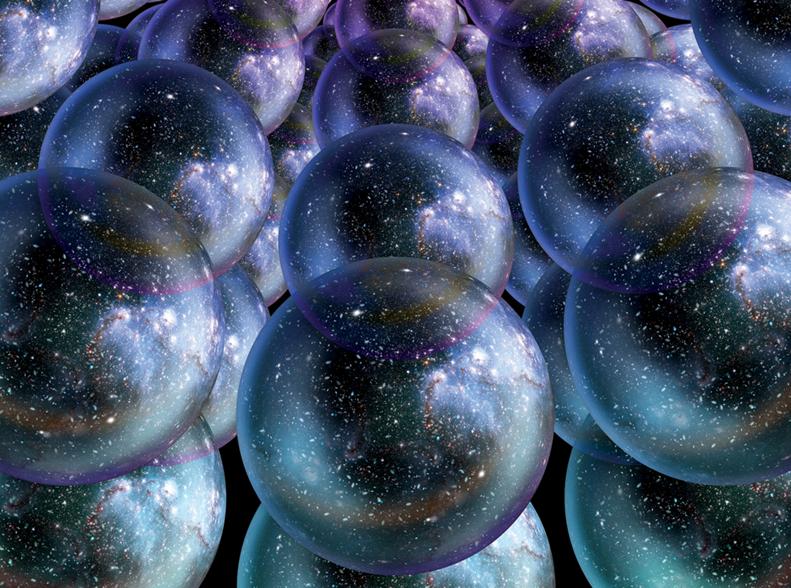
Brief Critique: The New God Argument
After posting a few weeks back on a Richard Dawkins article specific to Jesus and Atheism, I was responded by Lincoln Cannon a post called the New God Argument. I first heard this argument at the University of Utah from Lincoln while visiting the area for a conference.
Its logically sound, when the faith position is adopted. The argument is a derivative or rather an advancement on Nick Bostrom’s Simulation Argument and and Robin Hanson’s Great Filter argument, as the links above will tell anyone is much more detail. I’ve even sited Bostom’s 2003 paper in my own defense after being wrongfully labeled as an atheist. Its one thing to state that there is no God (atheism) or that we cant know if there is a God (agnosticism), and quite another to state that we could create or evolve into one or a vast many.
I think that Lincoln’s argument progressive and may provide the next wave of theology arguments in their defense this century. It’s fascinating to see how far the modern human mind can go in its extrapolation of our exiting technological potential. As Lincoln puts it, the logical truth that post-humans have a probability of.….……
[from Lincoln’s — angel argument, benevolence argument, and creation argument]
posthumans probably already exist
AND posthumans probably are more benevolent than us
AND posthumans probably created our world
After reading the argument I’m compelled to revisit my previous writings on spirituality. When I wrote that I was NOT and atheist I was leaving open the possibility (because of the probability) that we, as the new God argument reads, wont become extinct before becoming post-human. I was also relying on the probability that we could potentially create civilizations, worlds, galaxies, universes, multiverses, with humanoid or homo sapien like individuals. Having stated that I think that Lincoln and my definition of the God figure are much different.
When I reference the term God I’m only meaning to represent a creator figure; I am however, excluding the potential for this figure to intervene in those created lives/world/simulation. I cant find rationale that suggests the creator figure would have any incentive to intervene to interact as benevolent or otherwise.
Physics dis-Incentives: I think that there would first exist some very rigid code (computer language) that manifests in what we understand as our physical laws. Plenty of traditional atheists have identified the inconsistencies in physics as a cornerstone in their rebuttal to the spiritual realm. Their point being, physics is the great divide between what we are/can-be and what we cannot.
Management dis-Incentives: I don’t think that the creator figure would have the incentive to modify imperfections that it sees in its creation, because of the potential to recreate duplicates to modify with a searchable history for analysis are so attractive. We see these types of practices happening currently in the Information Technology (IT) industry becoming more common as computing power/speed/space become greater/faster/more abundant respectively. While There is the potential for the multiple creators in different places and times during a continuous evolution of (what some would call) our current transhuman being, to create existences like our own, they would all be quite different depending on the technology available, and unlikely curated to take advantage of the latest technologies available because of the obsolescence that exponential technological growth provides.
Economics dis-Incentives: Similar to the argument that I made in 2010 at Transhumanism & Spirituality the context in which individuals identify with “their own” spirits and a “supreme” spirit are inconsistent with the spirit having any potential actually interact on the individual’s behalf, in where, it connects the individual with physical being. The arbitrage or competition phenomenon in a competitive situation would create definite dis-incentives for benevolence.
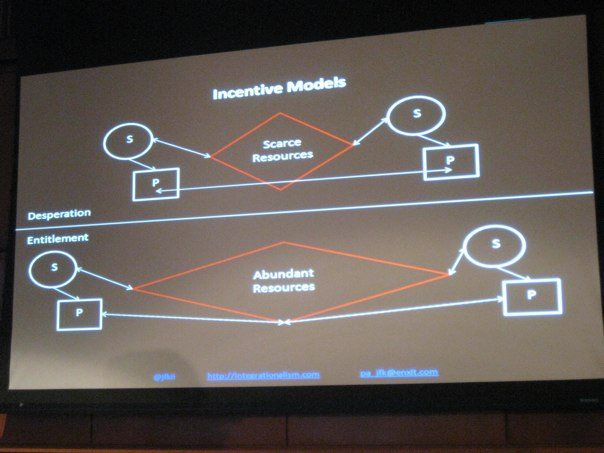
To go a bit further, I would like to take a tangent from Lincoln’s progressive Mormon Transhumanist philosophy and bring into consideration the ideal that some Christian’s subscribe to regarding the tangible or physical creations by spiritual beings or God (see page 3); and further, spirituality being a tangible phenomenon.
Simply, there would be physical traces of spiritual activity if at any point there were any other-than-physical interactions in our physical realm. Prayers and miracles for instance would have physical manifestations. One of my favorites is walking on water or even flying. I’m reminded of the elementary science projects where student turn solids into liquids and finally into gasses. In order for either of the aforementioned miracles to happen the physical properties of air or water would have to change from less dense to more dense, in an almost instantaneous fashion.…but there are simply no traces of that type of activity. The ideal that non-physical beings are more relevant to our physical realm is (in my opinion) invalid, and in fact provides a brand of ego-centric hope that ails human kind’s potential for real harmonious interaction.
The faith assumption is the cornerstone of The New God Argument, not the probability logic behind the benevolence argument. This should be conversely true considering the “value proposition” of spirituality: connectivity (or human connections).
It could be argued that I am faithful in human-kind’s ability to generate a desirable future and create linkages between persons without any need for a creator figure to intervene, generating an organic omnipresent benevolence. And even as I have coined myself as someone with no beliefs at all, I would keep that all we have is our opportunity to live and create connections…and dream of benevolence by using our technologies to create situations where resources of sorts are NOT scarce, and creating environments where we have incentives to connect. Faith is no substitute for rationale and action.
- from the Integrationalism blog
Instead of God-like…Think of #Singularity as opportunity to design benevolent super-intelligence
Instead of God-like…Think of #Singularity as opportunity to design benevolent super-intelligence. More effective than the ambiguous Abrahamic #judge #forgiver #guide http://ht.ly/4rSny We’ve got to get away from these old world arguments.
